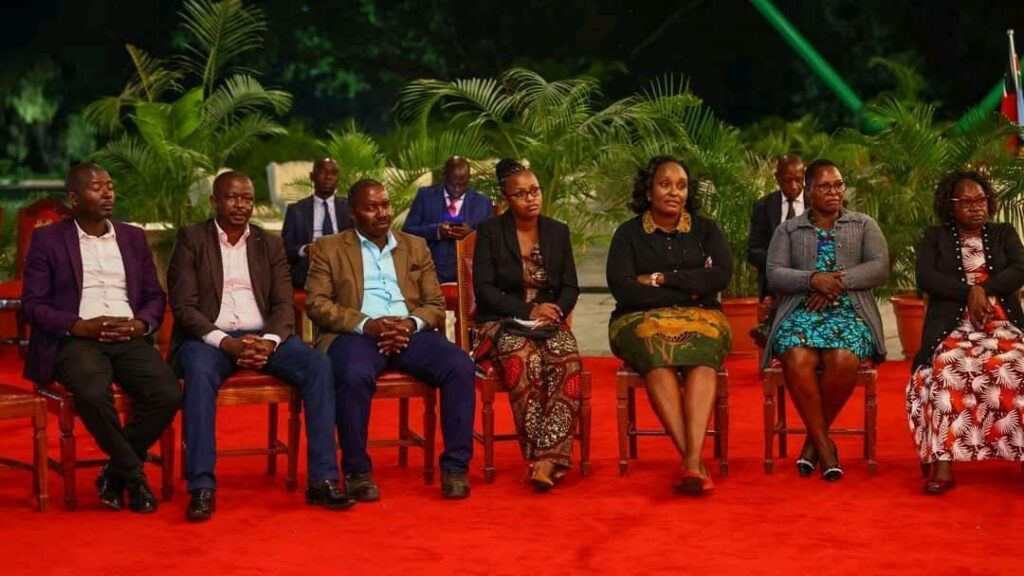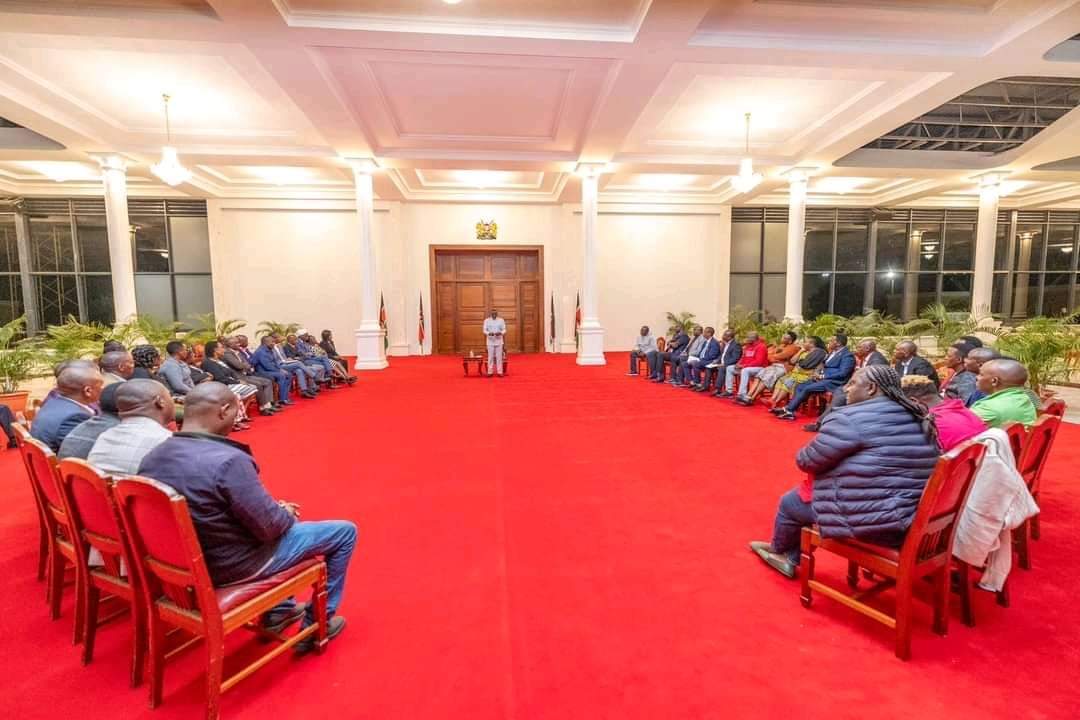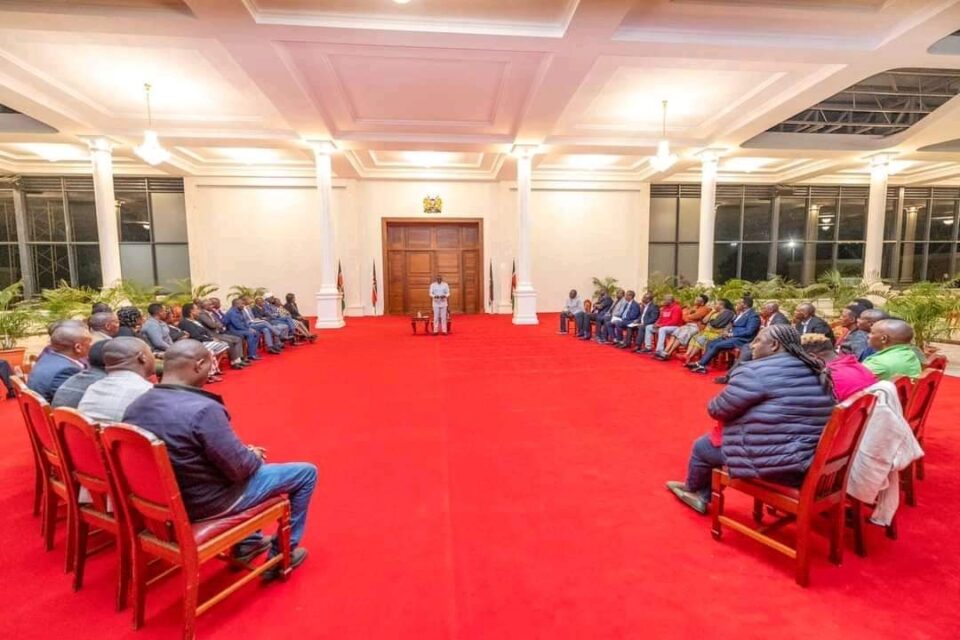Nairobi, Kenya – President William Ruto has recently addressed the contentious issue of the muguka ban, committing Ksh 500 million to support the affected counties. This initiative comes after a series of high-level meetings with county leaders from regions heavily involved in the cultivation and trade of muguka.

members discussing muguka issue.

The discussions focused on finding a balanced approach that addresses public health concerns while safeguarding the livelihoods of thousands of farmers and traders.
The Muguka Controversy
Muguka, a variant of khat, has been at the center of controversy in Kenya. Its widespread use has raised significant public health concerns, leading to calls for a ban. Critics argue that muguka consumption has adverse effects on health, particularly among the youth, contributing to increased addiction rates and related social issues.
On the other hand, muguka is a vital cash crop for many farmers in counties like Embu, Meru, and Kitui. The ban, therefore, poses a significant threat to the economic stability of these regions. The clash between health advocates and economic stakeholders has created a complex challenge for policymakers.
President Ruto’s Intervention
In a move to address this multifaceted issue, President Ruto held extensive consultations with county leaders from the affected regions. The meetings aimed to create a consensus on the way forward, balancing the need for public health measures with economic considerations.
During these discussions, President Ruto acknowledged the legitimate concerns of both sides. He emphasized the government’s commitment to public health while also recognizing the economic importance of muguka to many households. To mitigate the economic impact of the ban, the President announced a Ksh 500 million fund to support affected counties.
The Ksh 500 Million Commitment
The Ksh 500 million fund is intended to provide immediate relief to farmers and traders whose livelihoods have been disrupted by the ban. It will be used to support alternative livelihood programs, enhance agricultural diversification, and provide financial assistance to those transitioning away from muguka cultivation.
“This fund will help cushion the economic blow and support our farmers as they adjust to new agricultural practices,” said President Ruto. “We are committed to ensuring that no one is left behind as we prioritize the health of our citizens.”
The fund will be administered through a collaboration between the national government and county administrations. Specific measures include training programs for alternative crops, financial grants to support new agricultural ventures, and investment in infrastructure to facilitate the transition.
Regional Leaders’ Response
County leaders from Embu, Meru, and Kitui have welcomed the President’s initiative. They expressed appreciation for the government’s proactive approach in addressing their concerns and providing tangible support.
Governor Martin Wambora of Embu stated, “The President’s commitment is a significant step forward. Our farmers are resilient, and with the right support, they can successfully transition to other profitable crops. This fund is a lifeline for many families in our county.”
Similarly, Meru Governor Kiraitu Murungi highlighted the importance of a balanced approach. “We must address the public health concerns associated with muguka while also protecting the economic interests of our people. This fund will help us achieve that balance,” he said.
Future Prospects
The success of this initiative will depend on effective implementation and continuous collaboration between the national and county governments. Monitoring and evaluation mechanisms will be crucial to ensure that the funds are utilized efficiently and achieve the intended outcomes.
Moreover, there is a need for ongoing dialogue with stakeholders, including farmers, traders, health experts, and community leaders, to ensure that the transition away from muguka is sustainable and beneficial for all involved.
President Ruto’s commitment to addressing the muguka ban in a holistic manner underscores the government’s dedication to balancing public health priorities with economic realities. As the nation moves forward, the focus will remain on creating resilient and diversified agricultural economies that can withstand such challenges.
President William Ruto’s intervention in the muguka ban issue, coupled with a substantial financial commitment, marks a critical step in addressing one of Kenya’s most contentious agricultural and public health challenges.
By supporting affected counties with Ksh 500 million, the government aims to ensure a smooth transition for farmers while prioritizing the health and well-being of its citizens. The success of this initiative will be closely watched as a model for addressing similar issues in the future.

